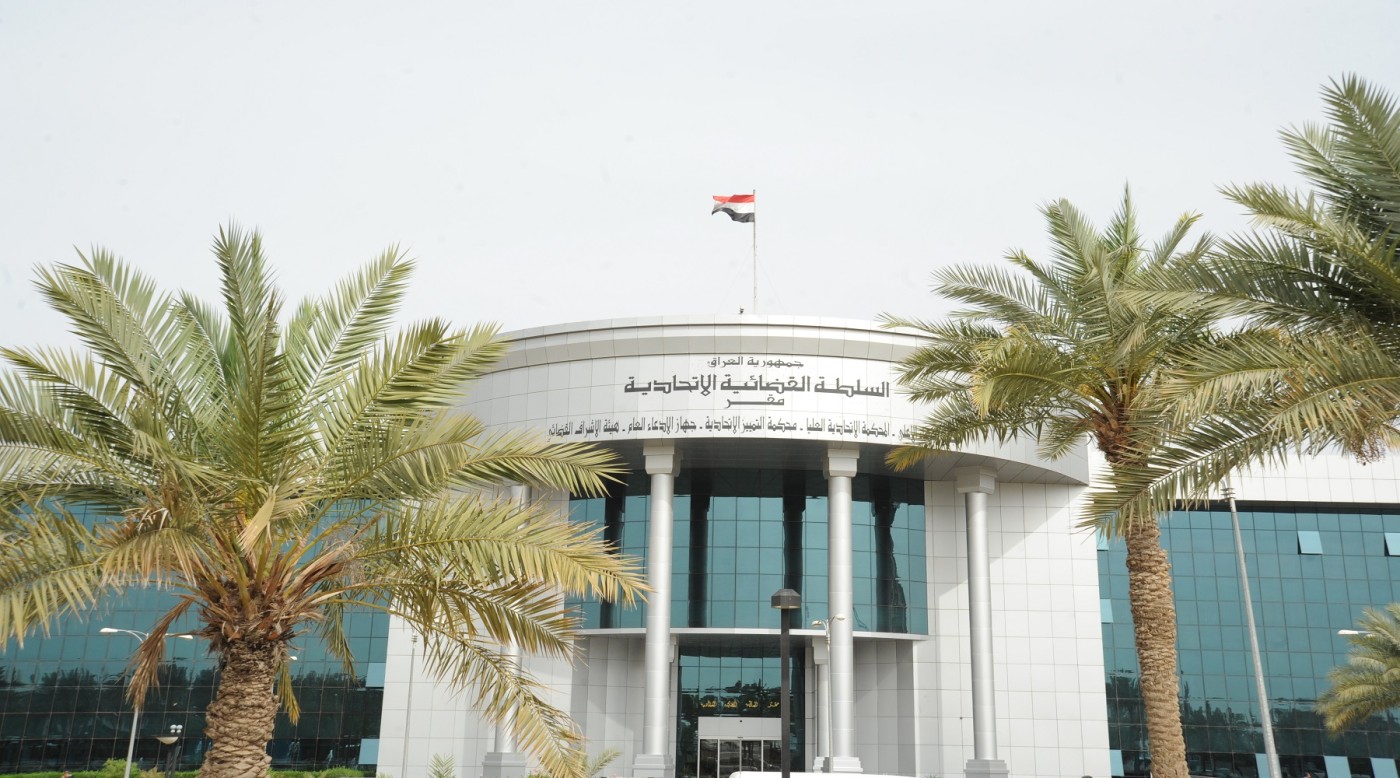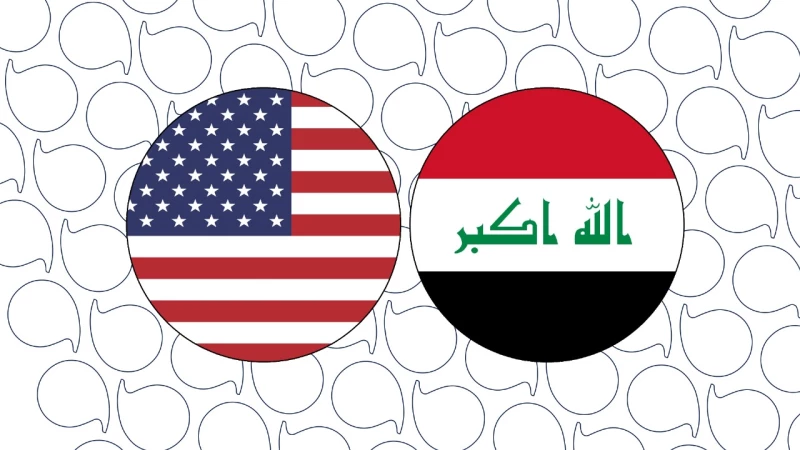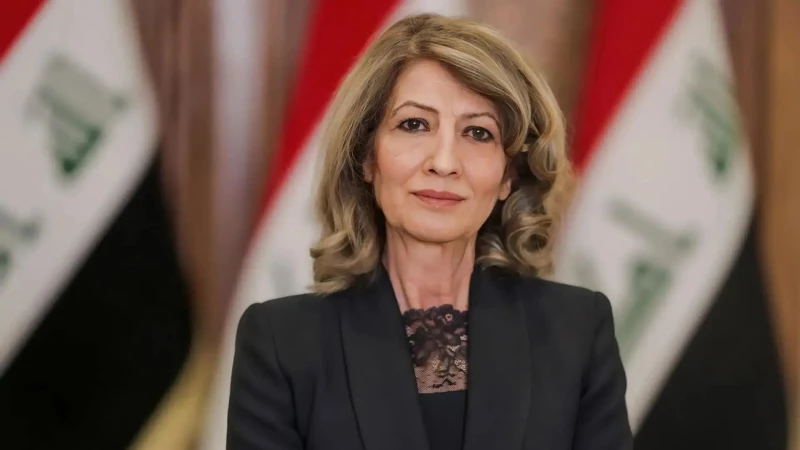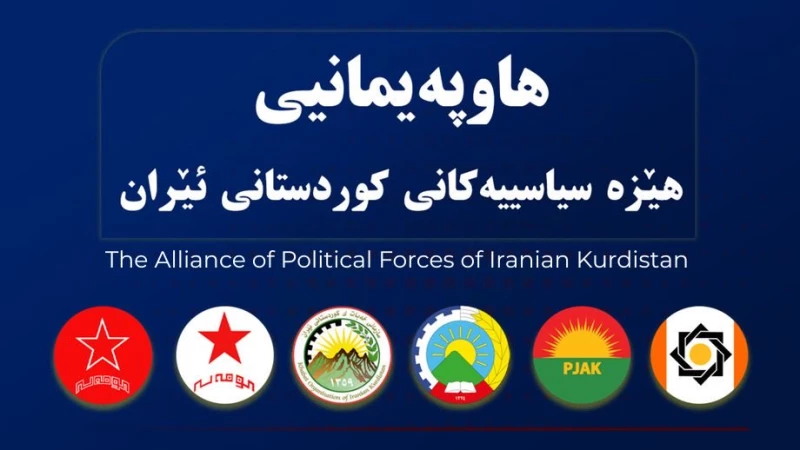The recent resignation of Judge Abdul Rahman Zebari, who represented the Kurdistan Region in the Federal Supreme Court, has sparked widespread speculation regarding the motives behind his decision.
In his resignation statement, the judge hinted at growing concerns about the Federal Court's departure from the principles of federalism within the country, suggesting a shift towards centralization.
This sentiment is underscored by a string of rulings issued by the Federal Supreme Court targeting the Kurdistan Region since March 2022.
A provocative dilemma
The Federal Supreme Court's involvement has ignited considerable controversy between Baghdad and Erbil. Despite the Iraqi Constitution of 2005 outlining the court's mandate to adjudicate judicial disputes and maintain a neutral stance in conflicts between state institutions, it is striking that the Federal Court, particularly since the establishment of Prime Minister Mohammed Shia' al-Sudani's government, has assumed legal roles that have positioned it as a participant in political disputes rather than a neutral arbiter.
The political posturing within the Kurdistan Region Coordination Framework has adversely affected the court's mandate, compelling it to stray from its intended role as outlined in the Iraqi Constitution.
Zebari's resignation from the Federal Court serves as a stark warning to Baghdad, signaling an attempt to undermine the court's legitimacy by challenging the core of its institutional balance.
This move may be just the beginning, potentially leading to further actions such as suspending the participation of Kurdistan Region deputies in parliamentary sessions, and even the withdrawal of Kurdish ministers from the al-Sudani government.
However, it appears that the forces within the coordination framework are not inclined to back down, which could prompt the regional government to pursue a strategy of exerting pressure on Baghdad, particularly through diplomatic channels and leveraging the region's extensive network of contacts in various regional and international decision-making forums.
Recent actions by the Kurdistan Region have garnered attention in this regard. This was highlighted by Kurdistan Region President Nechirvan Barzani's participation in the Antalya Diplomatic Forum and his meeting with Turkish President Recep Tayyip Erdogan, alongside Kurdistan Regional Government Prime Minister Masrour Barzani's visit to Washington and meetings with various American officials.
These initiatives were undertaken with the aim of urging both Turkey and the United States to increase pressure on the al-Sudani government, seeking to restore balance between Baghdad and Erbil.
The current state of relations between Baghdad and Erbil seems to be at a point where the Region has lost trust in the political system, and the continuation of such a state would lead the Region to criticize the legitimacy of the political process.
The Kurdistan Region’s ruling Kurdistan Democratic Party (KDP) announced that it would withdraw from the Region’s parliamentary elections set for June 10, criticizing decisions by the Federal Supreme Court, and warning that inability to meet agreements and constitutional rights by the current Iraqi cabinet would lead to the KDP’s withdrawal from the whole Iraqi political process as well.
Significant challenges
The Kurdistan Region has encountered considerable hurdles recently, particularly regarding escalating legal actions from Baghdad. Rulings handed down by the Federal Court against the region since March 2022 have eroded its autonomy.
As a result, the Kurdistan Region finds itself unable to export energy to Turkey, and by extension, to Europe. Consequently, the regional government has relinquished control over the financial proceeds from energy exports, significantly impairing the overall situation in the region.
Despite recent efforts by the region to mitigate internal pressures through enhanced external diplomacy, these diplomatic endeavors have yet to yield a balanced relationship with Baghdad.
Baghdad has effectively sidelined Turkey and the United States by directing the diplomatic dialogue solely between Baghdad and Ankara, as well as between Baghdad and Washington, diverting attention from Erbil's concerns.
Consequently, Erbil finds itself in a vulnerable position, potentially explaining its shift towards a less confrontational approach with Baghdad. This includes proposing dialogue initiatives aimed at tempering the exclusionary conduct of the coordination framework forces.
As the Kurdistan Region grapples with increasingly limited maneuverability, Baghdad is intensifying efforts to further undermine the region.
External allies on which Erbil depends show no inclination to favor it over Baghdad. Currently, the most drastic step the region can take is to challenge the legitimacy of Baghdad's political system by withdrawing its representatives from within that system.
This move is aimed at pressuring Baghdad to reconsider its escalatory measures in the next phase.
The influence of Iran
It is evident that Iran has played a pivotal role in bolstering the coordination framework's efforts to increase pressure on the Kurdistan Region.
This has been achieved by supporting these forces in implementing the Federal Court's decisions against the region.
Iran's ongoing attacks on the Region, under the pretext of targeting Israeli Mossad bases or the headquarters of Iranian Kurdish opposition groups in the region, signify a dual approach directed against the region: an internal one, represented by the framework forces, and an external one, represented by Iran.
In the context of Iranian pressure on the Kurdistan Region, several strategic motives come to the forefront.
Politically, the Kurdistan Region, particularly the KDP, has demonstrated a clear divergence from Iranian policy in Iraq. This was highlighted by the recent stance articulated by the Kurdistan Region presidency, which opposed the American military withdrawal from Iraq and expressed the region's preference to relocate this presence to Erbil.
Such a stance represents a notable deviation from Iran's regional strategic objectives in the Middle East.
Since the assassination of former Quds Force commander Qasem Soleimani in January 2020, ending the American presence in Iraq has become a top priority for Iran.
Iran views such demands as a genuine threat to its military strategy in Syria, particularly if the American presence is shifted to the region. This shift would pose a significant challenge to the secure land corridor that Iran has established in northern Iraq, extending to Syria's al-Hasakah province through coordination with armed Kurdish groups.
This development arises as Iran grapples with the diminishing strategic value of the land corridor linking to Deir ez-Zor city via al-Bukamal, due to repeated Israeli and American airstrikes.
Iran's recent actions towards Erbil have been largely driven by economic considerations, with the most notable examples being the attacks, including the recent ones on January 16, 2024, targeting Erbil's energy and gas fields.
These assaults underscore Iran's apprehensions regarding the economic policies pursued by the Kurdistan Region, particularly in light of the region's strides in establishing economic partnerships with Turkey and certain European countries for gas exports.
Furthermore, the Kurdistan Region's successful negotiation of gas agreements with Azerbaijan, facilitated by reciprocal visits between officials of both nations, with the aim of exporting gas to Europe via the Azerbaijani gas corridor through the Mediterranean Sea, is perceived as an economic threat by Iran.
In terms of security, Erbil has pursued a policy that diverges from Baghdad's approach towards Iran, particularly in three crucial security areas: the presence of Iranian Kurdish opposition groups, the Kurdistan Workers' Party (PKK) dossier, and the relationship with Sulaymaniyah. These issues hold significant security implications for Iran.
Similar geopolitical motives are at play in the relationship between Tehran and Erbil. Iran perceives Erbil's external engagements, particularly its interactions with Turkey and the Gulf states, as undermining Iran's influence in Iraq.
Despite Iran's efforts to expand its presence in the region, Erbil's concerns about the consequences of Iranian influence have prompted Iran to adopt a hostile stance. The recent attacks by Iran may be seen as a manifestation of its apprehensions about the foreign policies pursued by Erbil in recent times.
An uncertain outlook
The future of the relationship between Baghdad and Erbil hangs in uncertainty, particularly given the backdrop of the Federal Court's rulings and the prevailing mutual distrust between the two parties.
The persistence of this situation leaves the relationship vulnerable to further deterioration. It becomes apparent that there is a bias in the application of constitutional articles between the central government and the region, and this bias has influenced the functions of the Federal Court.
Consequently, Erbil finds itself grappling with a significant challenge in its dealings with Baghdad, particularly concerning efforts to normalize the political landscape as a precursor to addressing longstanding issues between the two entities.
It can be argued that forging a new political agreement between Baghdad and Erbil, centered on cooperation and peace rather than conflict and discord, could pave the way for improved relations between the two parties.
A key aspect of fostering this positive rapport is cultivating ties between them and steering clear of political confrontations and regional agendas.
While there is genuine representation of Kurds within the Iraqi state, this representation is hampered by the exclusionary stance adopted by the coordination framework forces, particularly those aligned with the tripartite alliance parties that emerged victorious in the 2021 elections.
Following the sidelining of Muqtada al-Sadr from the political arena and the removal of Mohammed al-Halbousi from the presidency of the parliament, the coordination forces intensified their stance against the Kurdistan Region, leaving the relationship between Baghdad and Erbil susceptible to various outcomes.



 Facebook
Facebook
 LinkedIn
LinkedIn
 Telegram
Telegram
 X
X


